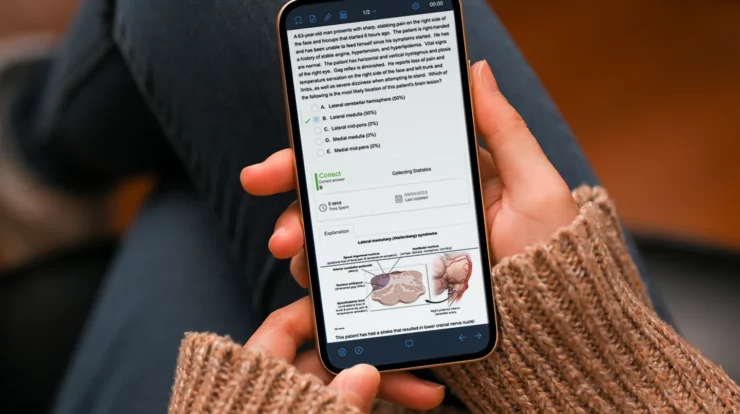
Every day, both patients and people who work in healthcare use apps in the medical field. They make it easy to keep track of important health details and make doctor visits. But medical apps can look very different from one another. It’s not all apps that give users a sense of support, safety, and control over their health. You can get quick help and accurate notes from the best medical apps in a way that is personal, quick, and easy to understand. What aspects of a medical app make it truly helpful? Take a look at these seven things first.
Simple and Clear Interface
The most important thing about medical apps is how simple they are to use. When they need help, people from all walks of life use these apps. Some people are in pain, scared, or don’t know how to use technology well. That’s why a system that works well is so important. You should find it easy to press buttons. It should be easy to read the fonts. Without having to learn new things, users should be able to use the app.
The best apps help users get ahead one step at a time. Scheduling an appointment or looking at test results shouldn’t be difficult to understand. Good plans and easy-to-use designs help people feel at ease.
Appointment Scheduling and Reminders
One of the best things about medical apps is that they make it easy to make appointments. Users can check availability and choose a time that works instead of sitting on hold or looking through calendars. This small adjustment restores people’s sense of control over their health plans.
You can get even more out of reminders. When you get timely reminders, like an upcoming meeting or a note to refill a medication, you’re less likely to miss a visit or fall behind on your treatment.
Secure Access to Medical Records
Nobody wants to have to go through a lot of trouble to see their medical records, test results, and medications. Making data easy to get to helps patients stay aware. Not having to make as many trips and calls is also a plus. It needs to be safe, though. There’s more to security than just passwords. It’s about keeping the wrong people out.
A trustworthy app has safe logins, security, and verification steps that make users feel safe.
Real-Time Chat or Virtual Visits
We need to ask questions occasionally. You shouldn’t have to make a full trip to the clinic for a small rash, a response to a new pill, or a simple follow-up. That’s why chat or video calls in real time are useful. Quick digital check-ins save time and resources and give you peace of mind.
These talks don’t have to take the place of care given in person. It’s just that they add more support.
Personalized Health Tracking
Each person has a unique health story. It’s no longer effective to use a universal app strategy. Whether it’s blood pressure, glucose levels, sleep, or happiness, a good medical app enables users to record what’s important to them.
It shouldn’t feel like work to use these tools. It should be easy to change and adapt them. Charts, graphs, or gentle nudges can help people see trends and make small changes to their habits. This kind of adaptation helps people understand things better and make better choices over time.
This is another important area in which the development of healthcare apps plays a crucial role. If you make the right design choices, you can use difficult data to make something positive and helpful.
Emergency Help and Quick Access Features
An app that works well can help you when things are tough. With emergency keys or links to nearby hospitals, poison control, or crisis support lines, it can be very helpful to have them easy to get to. Please ensure these features are clearly visible and easily accessible, rather than hidden among numerous options.
When things go wrong, it can be helpful to have your insurance information and a digital health ID in one place.
Feedback and Continuous Updates
When an app first comes out, it can’t be perfect. The best ones change with their users. A simple way to give feedback, such as a ranking or comment box, should always be available for this reason. Usually, users find small bugs or problems before coders do. In the long run, using the comments improves the app and stronger.
Regular updates help buyers have more faith in the business. The fact that an app is always getting better shows that the people who made it care.
Conclusion
A medical app is more than just a program. You can use it as a support, a notebook, a guide, or a helping hand. When it comes to success, the best apps are like people: they’re gentle, helpful, and clear. They do not try to do everything. Instead, they focus on just a few things and do them well.
Medical apps will continue to change how people handle their health as technology becomes even more integrated into daily life.


